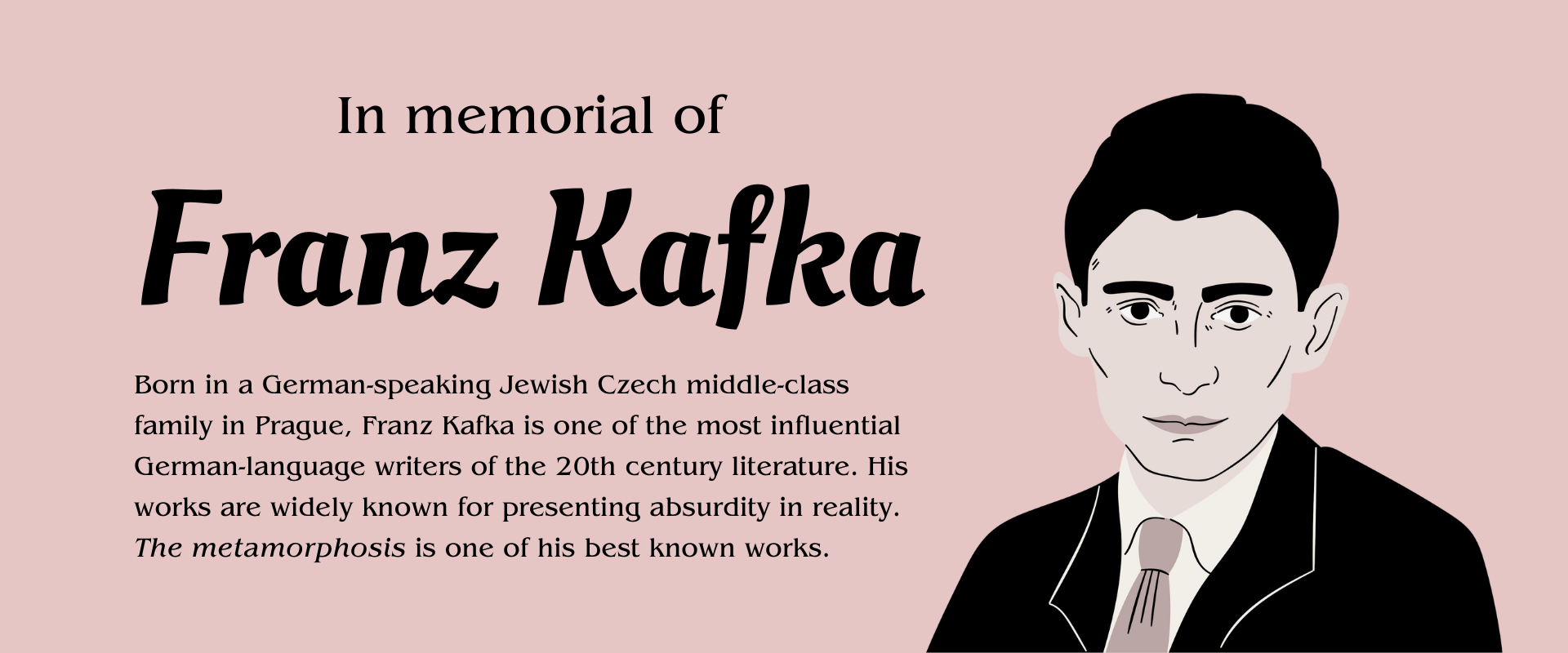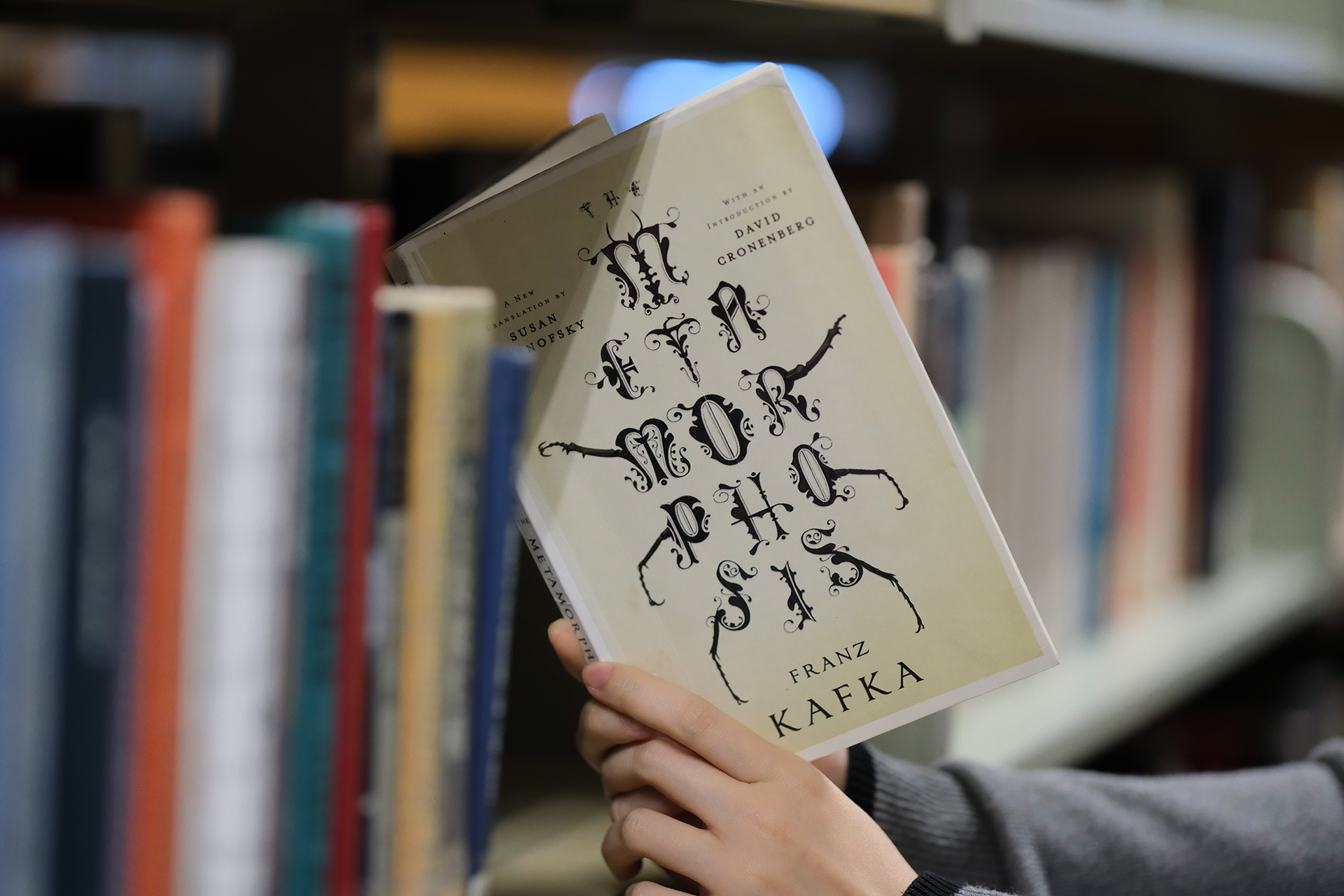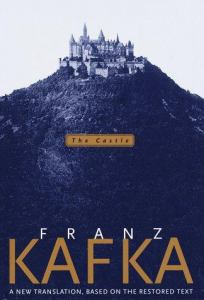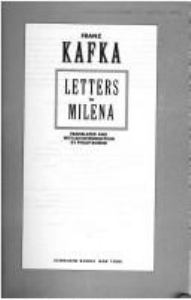
Summer induces the vibrancy of awareness. While we are gazing at the fiery blue sky, in the next breath, our faces are already dotted with raindrops from the gloom of dark clouds. There is nothing more absurd than that – uncontrollable, ever-changing, bizarre randomness. Absurdity is what you try to understand, yet far beyond your understanding.
“The right understanding of any matter and a misunderstanding of the same matter do not wholly exclude each other.” In the summer of 1914, Franz Kafka began to write The Trial, yet left the ending of the story incomplete and unknown before his death. The trial of Josef K. never ends. Absurdity.
Summer is associated with Kafka. On June 3, 1924, Kafka died in a sanatorium in Austria, just one month before his 41st birthday. The writer did not consider fame important during his lifetime, and even asked his friend to burn all his works after his death (well, we must thank his friend who utterly refused to carry out his wishes and even published his collected works).
Kafka’s writing became widely famous after World War II, and its influence oscillated from German-speaking countries to the rest of the world. Even today, he remains one of the most influential German-language writers of 20th century literature.
Summer is the season of reading Kafka. It’s the season of the birth and the death of this remarkable writer. It’s the season where metaphors become our language and guide us to reflect our personal beliefs.
Kafka is one of the most important writers in my life. His iconic literary style expressing ambiguity and intuition sparks my imagination towards the deeper truth of the world, and the individuals living within.
Whenever people ask me to introduce Kafka’s work, the first word that pops up in my mind is “surrealism” – to present the realistic side of the world with illogical, bizarre or dreamlike scenes, and the second word is “existence” – to find out the identity of oneself within the affiliated community. Kafka’s writing is characterized by depicting individuals struggling against the indifferent and oppressive forces of bureaucracy, authority, and the unknown. His works have been praised for the profound insights into human experience and philosophy.
To honor this literary legend, may I present to you 5 must-reads (also my all-time favourites) of Kafka, all can be borrowed from our Library or read online through the access of PowerSearch.
The Metamorphosis / 變形記
Genre: Novella, Fantasy Fiction
Difficulty: ♦◊◊◊◊
Description: Anyone new to Kafka’s works shouldn’t miss his iconic novel. It is an intriguing short story and easy for every Kafka-beginner to read and comprehend. The story is about a normal salesman, Gregor, who wakes up one day to find himself turned into a giant insect. His transformation has posed a significant impact on his family as he can no longer make a living. By the time Gregor is trapped in an insect form, misunderstanding and conflicts of interest start to emerge in his family. The story explores the degradation in human consciousness and self-identity through alienation and loneliness under societal pressure and breakdown of interpersonal relationships.
English translated version (printed book)
Chinese translated version (available online)
The Trial / 審判
Genre: Novel, Philosophical Fiction
Difficulty: ♦♦♦◊◊
Description: The protagonist, K., is unexpectedly arrested one morning and is never told the nature of his crime. Trapped in a complicated and confusing legal system, K. struggles to understand the charges against him and defend himself. The story explores themes of power misuse and how powerless the individual can feel against a cold, impersonal authority.
English translated version (printed book)
Chinese translated version (available online)
The Castle / 城堡
Genre: Novel, Philosophical Fiction
Difficulty: ♦♦♦◊◊
Description: The protagonist, K., arrives in a village and tries to gain access to the mysterious castle that overlooks it. K. battles against the confusing bureaucracy of the castle administration as he tries to understand his role and position in the village. The story reflects the struggles of the individual in search of meaning and dealing with illogical systems of power.
English translated version (printed book)
Chinese translated version (available online)
The Diaries, 1910-1923
Genre: Biography
Difficulty: ♦♦♦♦◊
Description: Kafka’s diaries written over more than 10 years give us a look at his personal life and inner thoughts. The diaries show the author’s difficult struggles with illness and death, providing a contrast to the uniquely imaginative expression in his famous novels. While the novels present his brilliant mind, the diaries reveal a more introspective side on this influential writer.
English translated version (printed book)
Letters to Milena / 給米蓮娜的信
Genre: Biography
Difficulty: ♦♦♦◊◊
Description: A collection of Kafka’s personal correspondence with Milena Jesenská, a Czech journalist whom he had a passionate relationship with. The letters offer an intimate glimpse into Kafka’s confession, desires, and dilemma, which gain us valuable insight into his creative process and the personal experiences that informed his distinctively soulful literary style.
English translated version (printed book)
Chinese translated version (available online)
Despite the absurdity that confuses us sometimes, we still grasp onto every beautiful moment and radiant being in life – when our inner thoughts are in perfect accord, when words touch our souls, when daylight breaks through the clouds and reaches our sights.
Have a fruitful and inspiring summer in Kafka’s fantastic, imaginative world. 🙂
Dorian Chow
Research and Learning Support
lbdorian@ust.hk
Follow libraryathkust on Instagram
Like Library@HKUST on Facebook
Views: 1613













